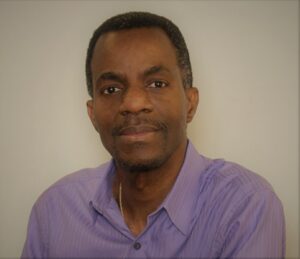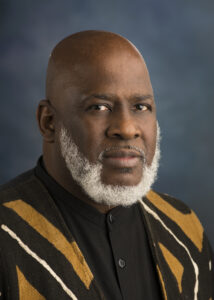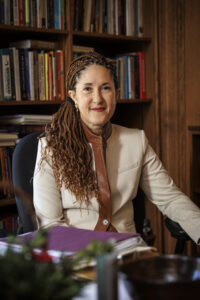
Dr. Sarah Higinbotham
English Professor at Emory University & Co-Founder of Common Good Atlanta
Sandra Barnhill’s Tough Mind, Tender Heart is a powerful memoir that weaves together personal narrative, social justice activism, and profound wisdom gained from her nearly four decades of groundbreaking work.
From her childhood days, in which she challenged her elementary school to host its first Black Santa Claus, to launching Georgia State University’s NAACP chapter (now ranked the nation’s best), to serving as the President of University of Texas School of Law’s Black Student Association, to her death penalty mitigation work, and then to founding and sustaining the longest-serving, female-led nonprofit in the South, Barnhill’s journey exemplifies what it truly means to combine fierce determination with deep compassion.
What makes this book particularly compelling is Barnhill’s ability to transform personal experiences into universal lessons about sustainable activism. As a child, she listened to her elders’ life stories at holiday meals. She wrote poetry. She committed to a life of vegetarianism. As a law student, she created a law school orientation specifically for Black students. As a young attorney, she confronted the disparity of sentencing Black defendants and took on the heartbreaking work of death penalty mitigation. All these stories make captivating reading, and yet they transcend mere narrative texture of her life story: she writes from a self-identity nurtured through deliberate reflection, so the events of her life enlighten readers about their own personal growth, perspectives, and self-awareness. As I read about her life, I saw my own purpose and potential more clearly.
The book is also extraordinary for its honesty about vulnerability. Barnhill’s reflection on crying— “shedding a tear means I am alive and well”—speaks to her broader message about authentic leadership and the importance of maintaining one’s humanity while fighting systemic injustice (pp. 7–8). She dismantles the “superwoman” myth. She challenges readers to resist grind culture. She advocates for inhabiting one’s true self. And as a trained attorney, Barnhill is also honest about the limits of law: “I do not believe the law is the answer. Yes, the law is part of the answer, but the answer is we, the people, working to form a more perfect union” (p. 38). Her life story exemplifies what people working together can look like.
Her life philosophy is also about activism that is grounded in love. Barnhill’s candid reflection that “love is not merely a private affair of the heart, but a potent force that energizes and sustains my activism” resonates deeply throughout the narrative (p. 58). This philosophy shaped her approach to serving over 45,000 children of incarcerated parents, creating programs that went far beyond legal advocacy to address the holistic needs of families affected by incarceration. Barnhill’s work, the readers perceive, completely grounded in love: in particular, love for the incarcerated women who implored her as their young attorney, “what about my children?” (p. 61). She heard them, loved them, then she put her love into action: children’s visitation to see their incarcerated mothers; after school enrichment, summer camps, counseling, college preparation, and career development for children of incarcerated mothers; piloting children’s centers inside prisons; back-to-school parties and leadership summits. She loved some of the most vulnerable people in our communities, and then turned that love into advocacy and support.
As someone who founded an Atlanta nonprofit and has helped nurture it for sixteen years, I wish I had read Tough Mind, Tender Heart when I was just starting out. It is essential reading for anyone interested in sustainable activism, social justice leadership, or the intersection of personal growth and public service. Her insights into building an organization on Afrocentric, womanist, people-centered, and community-based practices offer valuable lessons for anyone working in social justice spaces, particularly within corporatized and male-dominated sectors. She offers steps for connecting with your core values—then enacting what those values require in a complicated world.
Barnhill’s voice is both powerful and intimate, offering a blueprint for how to maintain both a tough mind and a tender heart on the long moral arc toward justice.

Lisa Rhodes, PhD
Executive Director, RISE Together Mentorship Network
In Tough Mind, Tender Heart: Reflections on a Black Woman’s Activist Journey, Sandra Barnhill eloquently brings together with transparent candor her personal and professional activist journey. In her fight against systemic injustices specific to women in prison, Barnhill chronicles her organizing and advocacy work in the nonprofit sector. On the frontlines of prison reform, she built a movement inviting young adults, educational institutions, and faith leaders like myself to create social change. When I was dean of Sisters Chapel at Spelman College, for more than a decade, students interned and joined Forever Family in the fight for social change. In this autobiographical literature, Barnhill joins the voices of Black women writers who tell the hard, yet transforming truth of organizing and activist work. Tough Mind, Tender Heart is a much-needed addition to the Black women’s literary tradition. Wrapped in an ethic of love, sacrifice, and faithful service, with deep audacious courage and insightful womanist wisdom, Barnhill speaks truth to power and holds in sacred trust the tender words of incarcerated mothers, “Help me with my kids.” An instructive blueprint and insightful manifesto. A work of challenge and moral courage, empowerment and vision, community and collaboration, resilience and hope.

Ulester Douglas
Social Justice Activist & Psychotherapist
One of the many contributions and strengths of Tough Mind Tender Heart is it demystifies activism. I have been doing social justice work for forty years and had not thought of myself as an activist until I read this book. That is because I, like many who do social justice advocacy work, have not passed what seems to be “the activist’s purity test” which is epitomized by the myths Barnhill firmly and tenderly debunked in Chapter 8. By exposing and challenging these myths, Barnhill delivers on a crucial commitment she makes to the reader that what she shares in these pages, “…will encourage you to be an activist, even for a few hours.” This is a vital invitation to the reader because Barnhill understands that social justice movements require as many of us as possible to be engaged if they are to be sustained.
The reader will be encouraged indeed by Barnhill’s authenticity, which is vividly exemplified by her willingness to be vulnerable. Not as easy undertaking for a Black woman in a world where such a strength is often framed as a deficit and met with hostility and violence. Despite this risk, Barnhill sagaciously dedicates the early chapters of the book to sharing her roots and telling personal stories that illuminate the non-linear and often-turbulent landscape of activism.
Barnhill wisely does not leave the reader to ponder alone the solutions to the challenges she identified. In chapter 9 for example, she offers guidance grounded in what she refers to as “centered activism.” She unpacks this concept and offers insightful and practical steps to knowing and engaging from one’s authentic self. She explains that “centered activism is not only about external actions it is equally about internal growth and alignment. Understanding oneself is foundational – a prerequisite to genuine and effective engagement in the world.” When I first read this, the therapist part of me said out loud “Amen!” That’s because I seldom hear self-awareness acknowledged as essential to effective activism. Instead, what I observe and hear from my activists-clients and others, is that self-awareness and care-for-self are seen as a luxury, a privilege, even selfish, and thus are discouraged. What is encouraged instead, implicitly and explicitly, is the myth Barnhill describes as “good activists are martyrs.”
If you have not purchased and read this book yet, I strongly encourage you to do so. I have known and worked with Ms. Barnhill in the movement to end violence against women for more than two decades; and what you will get when you read it, is what I have witnessed in her firsthand: A rare combination of authenticity, brilliance, and wisdom, accentuated by a tough mind and tender heart.

Akinyele Umoja
Professor of Africana Studies
Author of We Will Shoot Back: Armed Resistance in the Mississippi Freedom Movement
Co-editor of Black Power Encyclopedia & Memoirs of Robert and Mabel Williams
Attorney Sandra Barnhill’s Tough Mind, Tender Heart is a powerful memoir and important instructional guide for those interested in social justice activism and institution-building. Sandra Barnhill is the founder and former CEO of the nonprofit Foreverfamily (previously known as Aid to Children of Imprisoned Mothers – AIM). She is a veteran activist and advocate for the incarcerated and their families. Her decades as an attorney, service provider for marginalized communities, and builder of sustainable institutions qualifies her to speak and provide guidance to future generations of social justice activists.
In the early chapters of the book, Attorney Barnhill shares her biography for the reader to understand how her formative years contributed to a life of committed activism. Lessons from her childhood, parents, siblings, and mentors are all invoked in order to inform the reader of how this veteran activist came to be.
Barnhill tells us that she is “a Southern Black woman”, an identity with a rich and significant legacy. The legacy and activist tradition of southern Black women includes powerful freedom fighters like Ida B. Wells, Harriet Tubman, Ella Baker, Rosa Parks, Fannie Lou Hamer, Septima Clark, and Queen Mother Moore in the pantheon of African freedom fighting saints. And while these names are often included in our ancestral toasts, salutes and libations, there are countless names of unsung women of African descent. The unsung mothers of our people have nurtured, disciplined, and inspired the youth, provided political and moral leadership for grassroots communities, organizations, and institutions. The quiet and explicit traditions of work and leadership of our mothers, sisters, and partners to maintain our communities and challenge the systems that harm us is what Attorney Barnhill is embracing in emphasizing this identity.
From the intersectional identity of a Southern Black woman, Attorney Barnhill takes an inclusive lens of ethnicity, gender, class-orientation all grounded in a spiritually centered perspective. From this heterogenous lens, Barnhill summarizes some key lessons for activists from her four decades of activism and grassroots institution-building. I will highlight a couple of them.
Barnhill defines her social movement organizing philosophy as centered activism. She instructs activists to be balanced in their political, professional, and personal lives in order to be what my movement elders called being “long distance runners.” This perspective reminds me of many of our heroic freedom fighters who have made sacrifices for our collective liberation but have been overwhelmed with neglecting their physical and mental health, financial well-being or that of their households and significant others. Barnhill identifies myths about movement activists that are harmful for the development of balanced activists and sustainable institutions and insurgent organizations.
Centered activism is certainly grounded in an indigenous, African-centered, womanist wholistic worldview as opposed to a Eurocentric, hierarchical, and materialist patriarchy. An important component of centered activism is spirituality. While focused on in one chapter, a connection to the Divine and her connection to spirituality is reiterated throughout the manuscript. Barnhill identifies herself as a Christian but does not proselytize her reading audience to adopt her particular faith. On the other hand, she encourages activists to have a regular spiritual practice to reinforce their core values, reflect on their sense of self and reconnect with the deeper sources of existence and purpose. The demands of activism and social justice work can pull individuals into sole focus on completing tasks and production. Barnhill suggests routine practices like journaling and meditation to reconnect with meaningful foundations, collective principles beyond our day-to-day labor. For Barnhill, the activist connecting themselves to the communal values and grounding themselves in spirituality is as (if not more) important to individual and collective sustainability, as raising funds.
Tough Mind, Tender Heart is Barnhill’s gift to future generations of social justice advocates and people’s servants. It is storytelling combined with messages of intersectional wisdom and instructions of how to be in the movement for the “long run”, while building sustainable grassroots organizations and institutions. The book instructs activists on how to experience challenges without “being defeated” and to maintain joy in your life as a function of maintaining spiritual, mental, and physical balance in the face of systemic oppressions and oppressors that challenge the lives of humanity and the natural environment of Mother Earth. These are serious challenges. We have to be mentally tough, determined and focused to achieve victory. And at the same time, we cannot lose our hearts, our sensitivity and love for people and respect for Mother Earth in this war against these forces that have historically dominated and exploited humanity and the resources of the planet. Moreover, Tough Mind, Tender Heart is an invitation to join Barnhill in the fight for victory and social justice.
One Love
Free the Land

Layli Maparayan
Author of The Womanist Reader, The Womanist Idea, & Womanism Rising
In 2007, shortly after the publication of my first book, The Womanist Reader, I was invited by Sandra Barnhill to offer a workshop on womanism to the board of Aid to Children of Imprisoned Mothers, Inc., better known as AIM. Womanism is a social change perspective that originates from everyday women of color, particularly Black women. Even though this perspectives goes far back in historical time, it was named in 1979 when writer and activist Alice Walker coined the term “womanist” to refer to everyday Black women doing the work of social change in their everyday lives. When I met Sandra Barnhill and learned about AIM, I said to myself, this woman is a true womanist, and I hoped that one day the world would know about her and the womanist work she was doing under the banner of AIM. In 2007, AIM became known as Foreverfamily, and I was invited to join its board—my very first.
Tough Mind, Tender Heart tells the story of how Sandra Barnhill became who she is and how she came to do the work of Foreverfamily, changing the lives of children and youth with imprisoned parents, supporting the unsung caregivers of those children, shaping policy and practice in correctional facilities around imprisoned parents and their relationships with their kids on the outside, and influencing social workers, teachers, philanthropists, researchers, and others in the communities of care and concern surrounding children and families affected by incarceration. Sandra dedicated her life to this work out of her passion for her community. In fact, this passion came from a deeply spiritual place, powered by faith and a genuine desire to discern her purpose within that community and the wider world. This memoir is, indeed, a womanist memoir precisely because it begins from a place of rootedness in community and culture, not shying away from the spiritual dimensions of the journey, but ultimately focusing on making the community better using methods driven by love and care.
Womanism originates with women, but doesn’t end with women. A womanist is an agent of bringing people together for the cause of everyone’s betterment. Womanism empowers women, but promotes balance between and among everyone of every gender within the community. Womanism draws from women’s unique ways of being in the world, but ultimately invites everyone to participate. As I stated in that 2007 workshop, “Womanism is like a neighborhood, with everybody coming together for a common purpose.” This is what Sandra’s work with Foreverfamily was like. In Tough Mind, Tender Heart, Sandra writes of how she brought people together from every phase of her life – from “back home” to her university days to her legal colleagues and mentors across various fellowships, from fellow spiritual wayfarers – to ultimately serve the needs of children and youth with imprisoned parents and their caregivers. What a unique mission and what a unique memoir! That Sandra had the wisdom to carve out time from this demanding work and create a self-defined sabbatical that would allow her to complete the book we hold in our hands is a testament to her commitment to sharing her lifetime of learning, innovation, and transforming lives with a wider audience. I, personally, am truly grateful!
As someone who has both written books on womanism and taught courses on womanism at undergraduate and graduate levels, I can say with enthusiasm that Tough Mind, Tender Heart is a great addition to the larger library of womanist books. For those who teach womanist theory or womanist activism, you will want to add this book to your syllabus as a first-person account of womanist social change work. For those who just want a good read that touches on womanism, but is mostly about a dynamic woman with an inspiring career and the young lives she changed, you have also found your read. This book achieves my “womanist seal of approval”! Even though I am now outside the classroom as an administrator, I encourage all of my junior colleagues to adopt this text, and I encourage all of my sistah-friends with book circles to put Sandra Barnhill’s book in rotation. To those in the wider community who work with kids or teens and just need to expand your consciousness about what some families go through, this book is also a gem and an illuminating read.
I will end on a note of thanks to Sandra herself, not only for this book, but also for a lifetime of work dedicated to kids, families, communities, and the greater good. With Tough Mind, Tender Heart, now the story has been told. May others pick up where you left off!

Sam Aleinikoff
Founder & Executive Director, College AIM
Sandra Barnhill’s “Tough Mind, Tender Heart” is a powerful, transformative read for nonprofit leaders, social justice advocates, and anyone striving to balance direct service with long-term advocacy. Barnhill’s personal journey and leadership philosophy are woven throughout, providing a critical resource for those who aim to lead with both strength and compassion.
As a nonprofit founder, leader and advocate myself, Barnhill’s words are particularly important and resonant. Having followed Barnhill’s work and learned from her personally for more than a decade, I’ve seen her as one of the most impressive, bold, and thoughtful truth-seekers and truth-speakers in the field. In “Tough Mind, Tender Heart,” Barnhill’s words teach us how to seek and identify our own truths and speak those truths with grace, even in deeply challenging situations and circumstances.
At the heart of Barnhill’s work and writing is her ability to keenly identify and courageously confront inequity head-on. She shares her activism’s organic roots, including a story of her childhood on an army base in Germany, where she questions why there had never been a Black Santa at her middle school and organizes students to make a change. Barnhill then follows this thread through her efforts at Agnes Scott College, where she advocated for the hiring of their first Black faculty members, at Georgia State University, where she was an early leader in their campus NAACP chapter, and within the University of Texas’ law school, where she developed programming to make the campus more inclusive of Black and Latinx students.
Throughout, Barnhill’s focus on community-driven solutions is central to her vision of effective leadership. “The people—our communities—are the true answer,” she writes. This core belief led Barnhill to transition from a legal career to activism, direct service and organizing. “It is not enough to address issues after they’ve escalated to the point of incarceration. We need proactive solutions that address the root causes— educational disparities, economic inequities, and lack of community resources—that lead individuals down these paths in the first place,” Barnhill shares.
Ultimately, Barnhill’s journey—one that balances professional accomplishments and sincere personal exploration and bridges the gap between the Civil Rights Movement of the 50s and 60s and the social justice movements of today—helps to provide a blueprint for building advocates and movement leaders who can be in it for the long-haul. She meaningfully defines self-care, dismantles harmful myths and narratives about what it means to be a strong advocate, exposes the isms that live within our movements, and helps advocates to set boundaries and say no. Barnhill fights back against the idea that we must sacrifice our well-being to make a difference, sharing instead the counter-narrative that our own wellbeing is deeply tied to our ability to be effective activists. She develops pragmatic advice that proves essential for building sustainable leadership that can create lasting change.
Central to Barnhill’s philosophy is the concept of having a “tough mind” and a “tender heart.” She writes, “If you want to be an activist, an organizer, or a revolutionary, you must have a tough mind and a tender heart. A tough mind comes from examining yourself and your actions to develop a tender heart and empathy for people. A tough mind uses its intellect in service to the people, and a tender heart recognizes all of humanity, yours and that of others.” This balance between resilience and empathy is the foundation of Barnhill’s leadership style, and it offers a powerful model for anyone working in social justice or nonprofit leadership.
“Tough Mind, Tender Heart” is an indispensable resource for nonprofit leaders, activists, and advocates seeking to make meaningful, long-term, systemic change. Barnhill’s insights into systemic change, grassroots leadership, and sustainable advocacy make “Tough Mind, Tender Heart” a must-read for anyone committed to creating a more just and compassionate world.
Testimonials
Feedback from our Valued Readers
![]()
John Johnathan
Student
This book, Tough Mind, Tender Heart, offers a potent mix of personal stories and a call to action. Barnhill’s insights are a real eye-opener for anyone interested in social justice.
![]()
Henry Mark
Professor
What an inspiring read! Barnhill’s journey pushed me to get more involved in my community and advocate for justice.
![]()
Danny Johnson
Writer
Reading this book, Tough Mind, Tender Heart, shifted my opinion on activism. It’s not just about our work but also about caring for ourselves and each other.
![]()
Adam Anderson
Reader
Barnhill’s writing feels genuine and engaging. She captures the struggles and joys of activism.
![]()
Erick Brighton
Entrepreneur
This is a must-read for anyone wanting to understand activism in its essence. Barnhill’s wisdom truly shines through.
